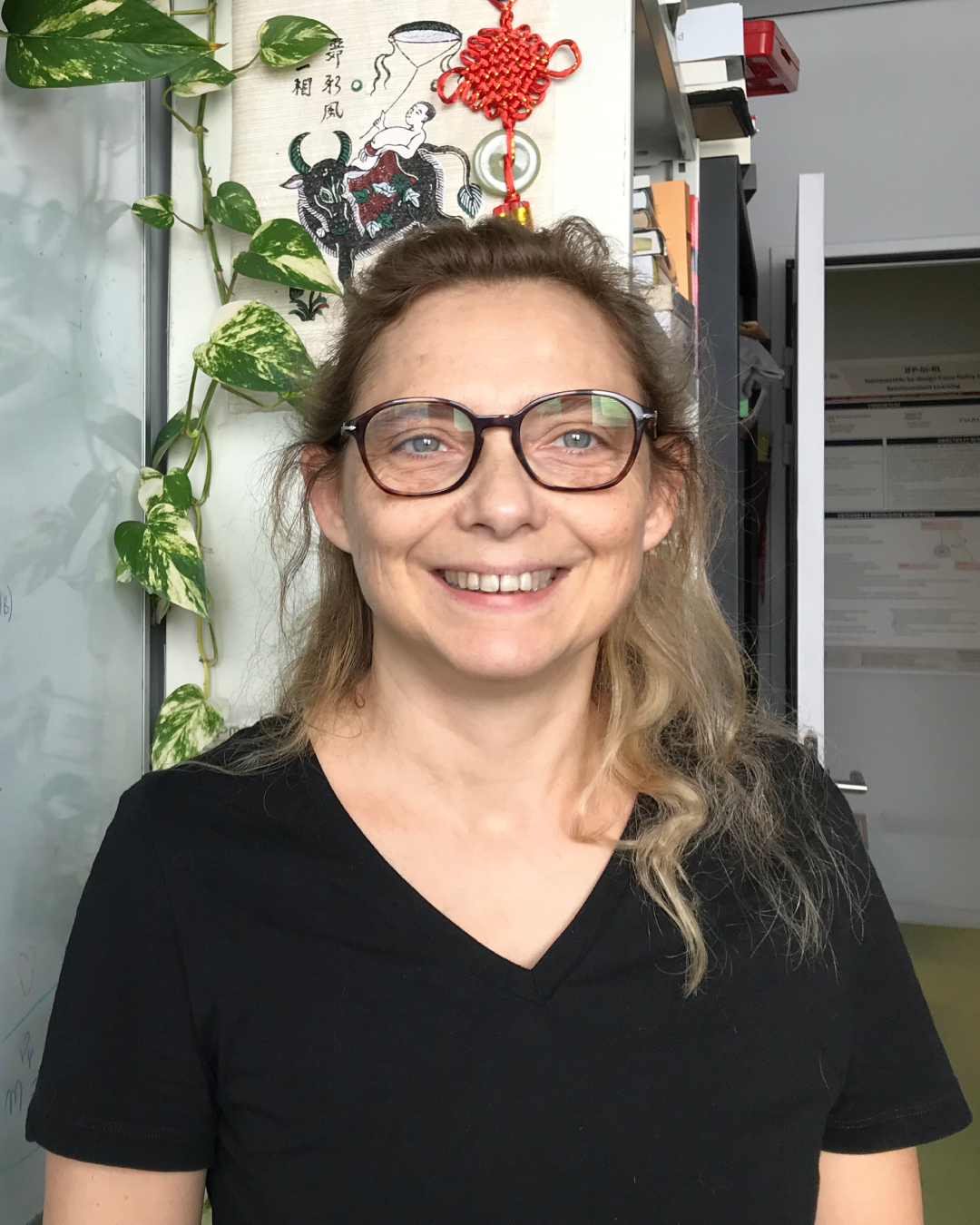
Michał Baczyński
Michał Baczyński received the MSc and PhD (summa cum laude) degrees in mathematics in 1995 and 2000, respectively. He received the habilitation degree in computer science in 2010. The President of Poland awarded him the academic title of professor in 2020. He has co-authored a research monograph on Fuzzy Implications (Springer, 2008) and has authored and co-authored more than 45 published articles in refereed international journals. He is also a regular reviewer for many respected international journals and a member of various committees at international conferences. He has presented his research works at more than 70 conferences with proceedings, such as FUZZ-IEEE, EUSFLAT, IPMU, FSTA, QLSC and AGOP. Michał Baczyński is a Member of the IEEE Computational Intelligence Society (IEEE CIS), the European Society for Fuzzy Logic and Technology (EUSFLAT), the International Fuzzy Systems Association (IFSA), the Polish Mathematical Society (PTM), the Polish Information Processing Society (PTI), the Polish Society for Fuzzy Sets (POLFUZZ), and the Polish Artificial Intelligence Society (PSSI). Prof. Michał Baczyński deals with the mathematical foundations of intelligent systems, especially fuzzy systems. He analyses different methods and systems where multi-valued operators, in particular fuzzy implication functions, are used.

Jiří Vomlel
Jiří Vomlel is a senior research fellow at ÚTIA, Czech Academy of Sciences and at IRAFM, University of Ostrava. His research interests lie in the area of probabilistic methods in artificial intelligence.
He specializes in computationally efficient probabilistic inference, structural learning of probabilistic graphical models, and their applications in diverse domains such as educational testing, linguistics, and sociology. He received his PhD in AI from the Czech Technical University in Prague in 2000 and spent three years as a postdoctoral researcher at Aalborg University in Denmark. He has supervised several MSc and PhD students. He has been a member of research teams in about twenty research projects funded by European and Czech science foundations. He is an area editor of the International Journal of Approximate Reasoning, a regular program committee member of prestigious AI conferences, and an active participant in student education and science popularization.

Tommaso Flaminio
Tommaso Flaminio is Tenured Scientist (Científico Titular) at the Artificial Research Institute of the Spanish National Research Council (IIIA-CSIC), Barcelona, Spain.
He graduated in Mathematics at the University of Siena in 2003 and he obtained his PhD in Mathematical Logic and Theoretical Computer Science in 2006 at the same university.
Tommaso spent postdoc positions at the IIIA-CSIC in Barcelona, the universities of Siena and Insubria, in Italy.
His research interests are knowledge representation and reasoning and, especially, in (fuzzy, algebraic and modal) logic, reasoning under uncertainty and, more recently, on logic for conditionals and counterfactuals, and belief change. On these topics he co-authored around 80 papers that appeared in international journals and proceedings of international conferences. He is area editor for Fuzzy Sets and Systems and the International Journal of Approximate Reasoning.

Agnès Rico
Agnès Rico is an Associate Professor at Université Claude Bernard Lyon 1 (France). In 2024-2025 she obtained a CNRS research delegationat position at the French computer science laboratory LIP6, Sorbonne Université (Paris, France). Her research focuses on non-classical fuzzy integrals used in decision theory (Choquet integrals, Sugeno integrals and their variants). She works on their axiomatization, elicitation, interpretation, and applications, particularly in areas such as explainable AI (XAI). She is an area editor of the Fuzzy Sets and Systems journal for the topic "Aggregation operations".

Humberto Bustince
Humberto Bustince Sola is a full professor of Computer Science and Artificial Intelligence at the Public University of Navarra and honorary professor at the University of Nottingham since 2017. He is the main researcher of the Research Group on Artificial Intelligence and Approximate Reasoning, whose research lines are both theoretical (data fusion functions, information and comparison measures, fuzzy sets and their extensions) and applied (Deep learning, image processing, classification, machine learning, data mining, big data or the computational brain). He has led around 15 research projects funded by national and regional governments, and two excellence networks on soft computing. He has authored or coauthored more than 400 works, according to Web of Science, most of them in Q1 journals. He was a highly cited researcher among the top 1% most relevant scientists in the world in 2018, according to Clarivate Analytics. He collaborates with first line research groups from countries such as United Kingdom, Belgium, Australia, the Czech Republic, Slovakia, Canada or Brasil. He is editor in chief of the Mathware&Soft Computing online magazine of the European Society of Fuzzy Logic and technologies and of the Axioms journal. He was Associated editor of the IEEE Transactions on Fuzzy Systems journal and he is a member of the editorial boards of the journals Fuzzy Sets and Systems, Information Fusion, International Journal of Computational Intelligence Systems and Journal of Intelligent & Fuzzy Systems. Moreover, he is a coauthor of a book about averaging functions, and has been the co-editor of several books. He has been in charge of organizing several first level international conferences such as EUROFUSE 2009 and AGOP 2013. He is Fellow Member of IEEE and Fellow of the International Fuzzy Systems Association (IFSA). Member of the Basque Academy of Sciences, Arts and Literature, Jakiunde, since 2018. He was president of the International Fuzzy Systems Association (IFSA) from 2023 to 2025.He has advised 11 Ph.D thesis.
He was awarded the Cross of Carlos III the Noble by The Government of Navarra in 2017. He got the National Computer Science Prize José García Santesmases in 2019 and the Scientific Excellence Award of EUSFLAT the same year.

Bernard De Baets
Bernard De Baets is a senior full professor in applied mathematics at the Faculty of Bioscience Engineering of Ghent University, the top-ranked Belgian university. He is leading the research unit KERMIT and acts as head of the Department of Data Analysis and Mathematical Modelling. Furthermore, he is an affiliated professor at the Anton de Kom Universiteit (Suriname), an Honorary Professor of Budapest Tech (Hungary), a Doctor Honoris Causa of the University of Turku (Finland) and a Profesor Invitado of the Universidad Central “Marta Abreu” de las Villas (Cuba). As a trained mathematician, computer scientist and knowledge engineer, Bernard has developed a passion for multi- and interdisciplinary research. He is not only deeply involved in fundamental research in three interlaced research threads, namely knowledge-based, predictive and spatio-temporal modelling, but he also aims at innovative applications in the applied biological sciences. At present, over 30 researchers are involved in the activities of KERMIT. Over the past 20 years, 75 PhD students have graduated under his (co-)supervision. Bernard is a prolific writer, with a bibliography comprising well over 500 peer-reviewed journal papers, 60 book chapters and 300 contributions to conference proceedings, accumulating more than 21000 Google Scholar citations (h-index 70). Several of his works have been bestowed upon with a best paper award. Moreover, he is a much-invited speaker, having delivered over 250 lectures world-wide. In 2011, he was elected Fellow of IFSA (International Fuzzy Systems Association) and in 2012, he was a nominee for the Ghent University Prometheus Award for Research. In 2019, he received the EUSFLAT Scientific Excellence Award. Bernard actively serves the research community, in particular as co-editor-in-chief of Fuzzy Sets and Systems and as member of the editorial board of several other journals, including the Internat. J. of Approximate Reasoning, Engineering Applications of Artificial Intelligence, and the Iranian J. of Fuzzy Systems.



